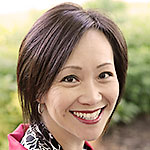
I told my partner one morning that despite going to bed early and sleeping in, I was still exhausted. We chalked it up to my recent responsibilities emceeing a conference, but upon closer examination of my calendar, we came to a different conclusion. I had been out of town for a portion of each of the past six weeks with trips to New York City, Washington, D.C., the Caribbean, and Ames, Iowa. Within this schedule, I had missed every single deadline for this particular piece.
“By the seventh day God had finished the work he had been doing; so on the seventh day he rested from all his work. Then God blessed the seventh day and made it holy, because on it he rested from all the work of creating that he had done” (Genesis 2:2-3 TNIV).
There may have been sleep and many naps, but I’m certain that I experienced a lack of rest. Taking time off work to vacation with 12 members of your extended family, or to move your child out of her dorm after graduation just days before you throw a small party for 40 people for your son’s graduation, is not resting from the work of creating. It’s actually work of the unpaid sort, and it also requires hard spiritual, mental, and emotional work, just like the paid work I do in campus ministry.
Because I am able to and have the privilege of working remotely, I also find that wherever there is Wi-Fi, there is work. For some of us, working long days and nights isn’t so much required to provide for our families as it was for my immigrant parents, but a product of our technology.
This made me wonder how my own personal view of and value for rest — the kind of restorative rest that God the Creator models for us by actually ceasing, stopping from the good and very good work of creating — is shaped by my experiences as a child of immigrant parents.
• • •
My first memory of a vacation was my family’s road trip to Florida. I had just finished third grade. My parents, my younger sister, and I packed into the family car (I think it was the Oldsmobile Cutlass Supreme) with a rice cooker, a hot pot, an electric frying pan, and an ice chest with small jars of kimchi and other Korean side dishes. My dad drove us from the suburbs of Chicago to Daytona Beach, Florida, with a stop at the Smokey Mountains. Every single vacation involved a national park that was beautiful and free.
Even in the midst of “rest”, there was so much work — driving as late into the night as my dad could make it, and my mom making rice in the motel room for dinner and more for lunch the next day at a rest stop so we could save money and still see America.
Saturdays were set aside for cleaning, fixing, running errands, and more work around the house. Sundays were set aside for church, church meetings, and meals at church. Weekends did not include nights with a fire pit or sitting on the deck my father built.
Weekends were simply a break from the English-speaking, white American world to take care of things at home and connect with other Korean-speaking immigrants. I know it was a type of rest for them, but it did not translate that way for me until I was much older. To me, while growing up, weekends remained filled with the work of managing two worlds divided by language and culture.
• • •
My parents bought a dry cleaning facility when I was in high school. The stories of our first years in the United States included stories about shift work and multiple jobs, but I had not personally experienced this kind of work and hours before. My parents (or my sister and I on Saturdays or during the summer) would leave home while it was dark and return sometimes 14 hours later.
Rest eluded my parents for decades, and yet their faith in and devotion to God never wavered. I would catch them reading their Bibles in the back of the store during a welcome lull during the day. My parents always stopped to pray before eating. They didn’t binge-watch anything. They didn’t take turns going out to a coffee shop. They never went away for a couple’s weekend. They didn’t and couldn’t model a 24-hour silent retreat, but I didn’t always equate their breaks as rest or a Sabbath.
What more or what else does my very western, U.S.-centric view of rest impose on the life of immigrants, or those who do not have paid or guaranteed vacations? What does God’s invitation and example of holy rest offer to those who actually cannot cease?
My parents did not talk about self-care or about resistance. They fought racism by doing their best to differentiate and explain the difference between Korean and white American values and where those values applied. They resisted by maintaining their mother tongue, teaching us as much Korean as they could, naming our dual identities of Korean and American long before Asian American was preferred. I now understand that they modeled rest — restoring their souls — by investing in the immigrant church where they could freely sing, pray, laugh, and cry out in their heart language while communing over cups of barley tea and bowls of rice and soup. They modeled rest by ceasing from work and being in community to enjoy all that was good. They turned to God who created them Korean, and rested in the company of those who spoke their heart language of rest.
I just wanted to go home and see my friends at school the following Monday.
• • •
My parents are now in their 70s, and both retired. My sister and I were afraid my mother would never retire and afraid of what retirement would bring. What do immigrants, who no longer feel rooted in the motherland or their adopted land, do all day long for the rest of their lives after working tirelessly? Can they rest? Can they cease and find peace? What will restore them?

As their adult child, I realize that having lived here in the U.S. most of my life (I was 8 months old when we immigrated), my familiarity to a place and its values of work and rest do not make the practice of rest any easier. As a woman who has given birth to three children, there was a season of my life when physically, there was no ceasing. My body incubated life, and after giving birth, my body still worked without ceasing as I breastfed each newborn out of infancy and even as I slept.
My partner and I are about two decades from retirement, but we are just three years from an empty nest. We sleep longer now than we did during our children’s younger years, but even as Christian leaders preach about rest and taking regular Sabbaths, there is a part of me that feels guilty — guilty for not working, for not having to work as hard as my parents did, for not wanting to work as hard as they did. Burnout is one thing. Laziness is another. As a child of immigrants, I’m not sure that I have figured this one out.
Does my ceasing from work dishonor the sacrifices my parents and our community made for me? Does my rest look like laziness compared to how my parents and their generation navigated obedience and faithfulness to God within the constructs of the American Dream? What does it mean to honor my parents and their hard work, and bless them in their retirement, while establishing new, faithful rhythms of rest?
At the end of the day, I cannot let the questions stop me from trying to walk in obedience and joy. God created and took joy in the work. The Creator looked at creation and deemed it “very good”, and then rested as if to signal to us mere mortals that ceasing was not a sign of weakness but of strength. There is power in walking away and taking stock of all that has happened; I take up my cross daily, balancing the value and necessity of work with the gift and necessity of rest, managing guilt and gratitude.

Kathy Khang is a writer, speaker, and coffee drinker based in the north suburbs of Chicago. Kathy is a columnist for The Covenant Companion, the Evangelical Covenant Church magazine, and Sojourners magazine. She is one of the authors of More Than Serving Tea (InterVarsity Press, 2006), blogs at kathykhang.com, tweets and Instagrams as @mskathykhang, posts at facebook.com/kathykhangauthor, and partners with other bloggers, pastors, and Christian leaders to highlight and move the conversation forward on issues of race, ethnicity, and gender within the Church. Kathy also has worked for the past 19 years with a national parachurch organization. When she’s not staring at a computer screen she can be found enjoying life with her husband and three children, reading, doing her nails, practicing yoga, or searching for the perfect pen and journal.

Michelle Kwon is driven by the need to create thought-provoking images. She tries to better understand humanity through books, conversations, and traveling on her two small feet. For more, visit her website at michkwon.com or follow her Instagram @agentlegraph.